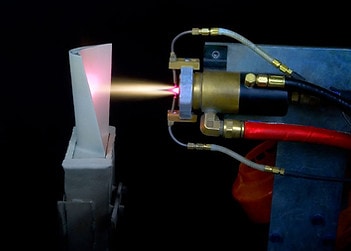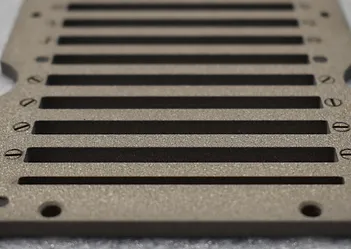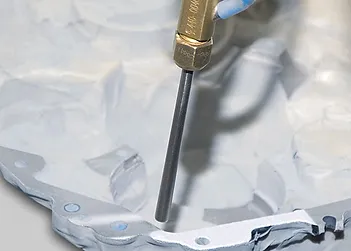Thermal Spray Coating Services to Protect the Product for Optimal Performance
Vivid Inc. is a leader in thermal spray technologies. We provide a vast array of methods to meet your coating needs without compromising quality.
We have an in-house facility where we perform all of our thermal spray techniques, utilizing state-of-the-art equipment to ensure consistency.
We specialize in several thermal spray coatings, for example thermal sprayed zinc and aluminum metals. It’s used in various industries for a multitude of applications. Multiple options mean we can choose the best application compatible with your product and its requirements. Our experts are well-versed in all aspects of thermal spray coating, from preparation to application.
Thermal Spray Coating Methods
We have different high-end metal spray coating methods to improve its efficiency. These are designed to protect the product for optimal performance while enhancing its durability against different factors, such as corrosion, oxidation, weather, and erosion. It also strengthens and fixes worn or damaged surfaces.
Our wide range of thermal spray coating options includes the following:
Plasma Spray
Applications:
Turbine combustion chambers
Seal ring grooves in aero-engine turbines
Diesel engine piston rings
Manufacturing equipment refurbishment
High corrosive dielectric applications
PVD/CVD chambers
Twin Wire Arc
Applications:
Automobile and engine parts
Industrial Mixing Equipment
Galvanizing industrial steel
Marine equipment
Wind turbine components
EMI/RFI shielding plastic enclosures
CVD/PVD chambers
Cold Spray
Applications:
Busbars
Hybrid-heatsink
Brake discs
Sputtering target
Why Opt for Thermal Spraying?
Increasing the corrosion-resistant levels of a part or component is essential in any industry. This thermal spray method will protect these materials from environmental and man-made factors. Thermal spray coating is a practical choice as it offers a solid bonding to the substrate and can stand up against extreme temperatures.
It’s better than a cold galvanizing spray because it’s a more comprehensive solution. It doesn’t just protect the surface but also offers outstanding high-temperature performance. The result will ensure that the adhesion is more secure with better galvanic protection.
Choose Us to Fulfill All Your Thermal Spraying Needs
Vivid Inc. has been providing thermal spraying services for many years. It allowed us to hone our crafts using our expertise and the best equipment. So we offer a wide array of options that will adhere to the industrial standards.
With stringent quality control, you’ll experience superior outcomes. If you want to learn more about our services, feel free to contact us today. We’re happy to find a solution to ensure your project’s success. For bigger orders, request a quote, and we’ll give you a competitive price that won’t break the bank.




